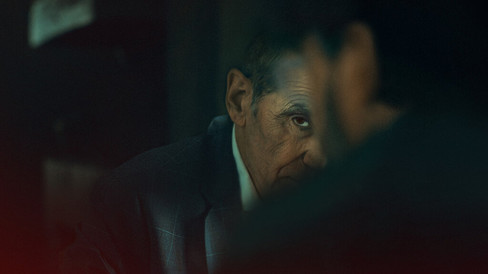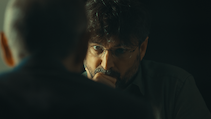Review: "Face to Face with ETA"
- Jennifer Green

- Dec 15, 2023
- 2 min read
You'll need to come in with some historical context to fully grasp or appreciate the staid, one-on-one interviews of this Spanish documentary. If you do, you'll find plenty of interesting material in Face to Face with ETA: Conversations with a Terrorist.
The film has faced backlash in Spain for the whitewashing potential of giving a former ETA leader such a platform. The "terrorist" in question doesn't think of himself as a terrorist; he bristles, for example, at any comparison between ETA and religious-based jihadist movements, and he makes hazy parallels between ETA's victims and the "oppression" and misconduct by Spanish authorities.
In fact, talk about the historical "repression and suffering of the Basque people" is an example of one area needing more explanation for international viewers.
Other aspects won't go far enough for local viewers. Journalist Evole's questions are probing, and he attempts to point out inconsistencies, but he also lets Urrutikoetxea get away with significant ambiguities and abstractions. You can walk away unclear exactly what role he played in various actions.
The film's stance is clear in its opening and closing explanations and its structure, with the main event bookended by interviews with a victim of ETA who finds out, for the first time and on camera, that Urrutikoetxea played a role in the attack on him.
End credits conclude that ETA disbanded after nearly 60 years without having obtained a single one of its original goals and a quote suggesting ETA "never should have happened."
Face to Face tackles the conflict from an intellectual position, but to get a sense of the gut-wrenching human impact of ETA's years of activity, see the emotionally charged miniseries Patria.
Read the full review at Common Sense Media
Images courtesy of Netflix



Comments